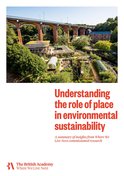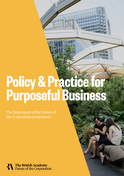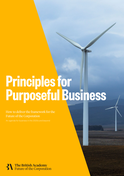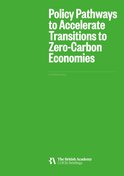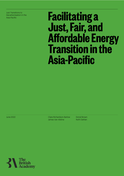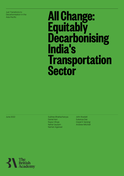Sustainability for People and Planet

- Programme status
- Ongoing
Sustainability connects the environmental, social and economic goals of society with concern for the long-term and future generations. It provides a framework for governments, businesses, civil society and others to set priorities for policy and practice, particularly in response to climate change.
The British Academy can provide crucial insights from the SHAPE disciplines (social sciences, humanities and the arts for people and the economy) into the resulting debates: from behavioural science to history, literature to economics, politics to anthropology and many more disciplines.
Our programmes and projects under this theme aim to produce fresh insights and reframe debates by fostering creative interactions between our disciplines and key communities within policy and practice ecosystems, including governments, regulators, businesses, investors, local authorities, civil society, and others. They engage with a diverse range of stakeholders to promote dialogue, support initiatives, and maintain networks, including partnerships with our fellow national academies. We encourage those with an interest in the theme and the projects and programmes listed below to reach out and connect.
Where We Live Next
Find out moreWhere we live next', explores environmental sustainability through the lens of place and place-sensitive policy making. It examines how visible different places – and the people and cultures within them – are to decision makers when they make decisions about the environment, and how policymaking in this area could be strengthened.
The programme builds on the evidence from the Academy’s 'Where we live now' programme, which explored what places mean to people and why, and what place-sensitive policymaking might look like in relation to productivity. We are using our multidisciplinary SHAPE evidence base and working with policymakers and experts to co-develop a set of principles for place-sensitive policymaking on environmental sustainability. We will then explore how to apply the principles to policy planning and decision-making processes in practice. The themes that we will explore are:
- The social, cultural, and educational factors affecting just transition
- The voices, spaces, and scales of environmental governance
- Multidisciplinary insights on place and the delivery of a sustainable and productive economy
- The relationship between businesses and communities in local sustainability approaches.
Net Zero Governance
Find out moreThe British Academy Net Zero Governance Programme aims to produce policy analyses and outputs that contribute to delivering the UK commitment to achieving net zero by 2050. It uses insights from the SHAPE disciplines (Social Sciences, Humanities and the Arts for People, the Economy and the Environment) to improve approaches to designing and implementing net zero policies in the UK.
Published in the British Academy Journal in 2023, five discussion papers explored the “Governance Factors on the Road to Net Zero” across housing, the role of people, place-based business support, and local net zero governance. They provide an in-depth analysis of some of the key lessons that can be used to further progress the implementation and delivery of net zero targets. These emphasised a range of cross-cutting themes across the issue of net zero governance, such as:
- The importance of local and regional scales of governance to convene stakeholders, coordinate action and share knowledge.
- Challenges with skills and capacity, coordination and accountability, and conflicting regulations.
- The value of co-benefits, the perception of fairness in policy solutions and a people-centred approach.
Between 2021-2022, nine research projects engaged diverse people and places to explore methods to foster a shared understanding of a sustainable future, considering how collaboration across sectors (public, third sector, business and local communities) can foster shared commitments to goals, values and programmes to deliver net zero as part of a sustainable future.
Further research, analysis and stakeholder engagement will continue to build on a clearer picture of the evidence around policies and initiatives that are supporting the transition to net zero.
Future of the Corporation
Find out moreThe Future of the Corporation programme examined the purpose of business and its role in society, led by Professor Colin Mayer FBA, Professor of Management at the Saїd Business School. In its four years of work prior to its conclusion in 2021, it combined research from a range of academic disciplines with insight from senior business and policy leaders. In 2018, it highlighted trust in business and its impact on people and the environment along with globalisation and technological disruption as drivers of a shifting view of business. The research suggested a need to develop a new, more human framework for the corporation around well-defined and aligned purposes, complemented by ethical cultures and commitments to trustworthiness. Professor Mayer drew together the research and defined the purpose of business as "producing profitable solutions from the problems of people and planet, and not profiting from creating problems."
The programme produced a set of principles for purposeful business in 2019 and built on these with extensive work involving a wide range of stakeholders to develop policy and practice in support of those principles. Beyond its conclusion in 2021, the programme has continued to have an impact and the Academy is supporting follow-up initiatives looking at how purposeful business is taught in UK business schools, and how the concepts it developed can be translated into law and regulation.
